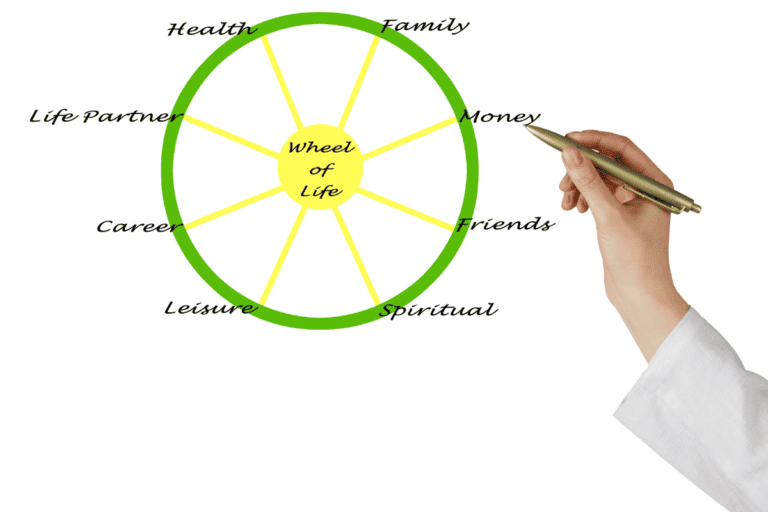Can Coaching Help With Decision Making?
Imagine you're standing at a crossroads, unsure which path to take. You feel the weight of the decision pressing down on you, and the fear of making the wrong choice is paralyzing.
This is where coaching steps in as your guiding compass, helping you navigate through the complexities of decision making.
But can coaching truly make a difference? Can it provide you with the clarity and confidence needed to make informed choices?
In this discussion, we will explore the role of coaching in decision making and uncover how it can support you on your journey towards making better decisions.
Key Takeaways
- Coaching enhances decision-making processes by providing guidance and support.
- Coaching helps individuals develop and strengthen decision-making skills.
- Self-awareness allows understanding of biases, emotions, and thought patterns.
- Practical tools and techniques, such as decision matrices and SWOT analysis, can support informed choices.
The Role of Coaching in Decision Making
Coaching plays a crucial role in enhancing decision-making processes by providing individuals with the necessary guidance and support to make informed choices based on evidence and analysis. The importance of coaching in decision making can't be overstated. Through coaching, individuals can develop and strengthen their decision-making skills, allowing them to navigate complex situations with confidence and clarity.
One of the key ways in which coaching impacts decision making is by helping individuals gather and analyze relevant information. Coaches can assist in identifying and accessing resources, conducting research, and evaluating data. This ensures that decisions are based on a solid foundation of evidence, minimizing the risk of making decisions based on assumptions or incomplete information.
Coaching also helps individuals gain a broader perspective when it comes to decision making. By providing a sounding board and asking thought-provoking questions, coaches encourage individuals to consider different viewpoints and explore alternative options. This process of reflection and exploration expands the individual's thinking, leading to more creative and effective decision-making.
Furthermore, coaching supports individuals in developing their critical thinking skills. Coaches can challenge assumptions, encourage logical reasoning, and promote analytical thinking. This cultivates the ability to weigh pros and cons, anticipate potential outcomes, and make well-informed decisions.
Enhancing Clarity and Focus Through Coaching
Coaching can be a powerful tool for improving mindset and overcoming obstacles in decision making. Through personalized guidance and support, coaching helps individuals gain clarity and focus, enabling them to make better decisions. Here are five ways coaching can enhance clarity and focus in decision making:
- Reflective questioning: Coaches ask thought-provoking questions that challenge your assumptions and beliefs, helping you gain a deeper understanding of your decision-making process.
- Goal setting: Coaches assist in defining clear and specific goals, which helps you stay focused on the desired outcomes and reduces distractions.
- Accountability: Coaches provide accountability, holding you responsible for your decisions and actions, which helps maintain focus and motivation.
- Mindfulness techniques: Coaches teach mindfulness techniques that enhance self-awareness and help you stay present, reducing mental clutter and improving clarity.
- Action planning: Coaches help you develop action plans with clear steps and timelines, facilitating a structured approach to decision making.
Increasing Self-Awareness for Better Decision Making
Increasing self-awareness is a crucial factor in making better decisions. It allows you to understand your own biases, emotions, and thought patterns that may influence your choices. By improving your judgment and overcoming cognitive biases, you can make more informed and rational decisions.
Self-awareness is the ability to recognize and understand your own thoughts, feelings, and behaviors. It involves being mindful of your own biases and emotional reactions when making decisions. Research has shown that individuals who are more self-aware tend to make better decisions because they're able to identify and challenge their own biases.
Cognitive biases are inherent flaws in our thinking that can lead to irrational decision-making. These biases can cloud our judgment and prevent us from considering all relevant information. By increasing your self-awareness, you can become more attuned to these biases and actively work to overcome them.
One way to increase self-awareness is through coaching. A skilled coach can help you uncover and understand your own biases and patterns of thinking. They can provide a fresh perspective and challenge your assumptions, enabling you to make more objective decisions.
Practical Tools and Techniques for Informed Choices
To make informed choices, it's essential to utilize practical tools and techniques that can enhance your decision-making process. Here are five valuable tools and techniques that can assist you in making informed choices:
- Decision Matrix: A decision matrix is a systematic approach that helps you evaluate and compare different options based on multiple criteria. By assigning weights to each criterion and scoring the options, you can objectively assess the best choice.
- Decision Making Framework: A decision-making framework provides a structured process for making decisions. It typically includes steps such as identifying the problem, gathering information, generating alternatives, evaluating options, and selecting the best course of action.
- Cost-Benefit Analysis: This technique involves weighing the costs and benefits of each option before making a decision. By quantifying the pros and cons and considering the potential risks and rewards, you can make more informed choices.
- SWOT Analysis: SWOT stands for strengths, weaknesses, opportunities, and threats. This analysis helps you assess the internal and external factors that could impact your decision. It enables you to identify potential challenges and leverage your strengths and opportunities.
- Decision Trees: Decision trees are visual tools that help you map out different possible outcomes and their associated probabilities. They provide a structured way to evaluate the potential consequences of each decision option.
How Coaching Can Support Your Decision-Making Process
By incorporating coaching into your decision-making process, you can gain valuable support and guidance that enhances your ability to make informed choices.
Coaching offers numerous benefits that can significantly impact your decision-making strategies. One key benefit is the opportunity to gain a fresh perspective from an unbiased and experienced coach. This external viewpoint can shed new light on your options and help you see potential blind spots or biases that may be influencing your decision-making.
Additionally, a coach can provide structured frameworks and tools to assist you in analyzing and evaluating your choices. These frameworks can help you consider various factors such as risks, benefits, and long-term consequences, enabling you to make more well-rounded decisions.
Furthermore, coaching can help you develop critical thinking skills and enhance your problem-solving abilities. With the guidance of a coach, you can learn to think more strategically, weigh different perspectives, and identify creative solutions. This can lead to more effective decision-making, as well as increased confidence in your choices.
Conclusion
In conclusion, coaching can be a game-changer when it comes to decision making. With its ability to enhance clarity and focus, increase self-awareness, and provide practical tools and techniques, coaching offers invaluable support for making informed choices.
Its impact on the decision-making process is nothing short of remarkable. So, if you're seeking to make better decisions, consider incorporating coaching into your journey, and witness the transformative power it brings.







